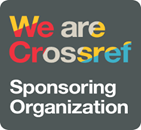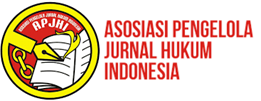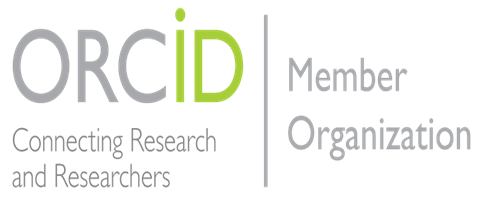Transfer of Sustainable Technology Based on Compulsory Licensing Principle under the WTO Law
DOI:
https://doi.org/10.70193/ijlsh.v2i3.269Keywords:
TRIPs Agreement, Compulsory Licensing, Transfer of Technology, Climate ChangeAbstract
Development of electric vehicles (EV) constitutes a transformation of transportation in combating global warming. It also purposes for overcoming increase of premature death of human being because of high fossil fuel consumption in transportation particularly in Indonesia as developing countries. However, the technology application is a challenge for such countries to adopt for usage publicly. The challenge faced by Indonesia is private rights of intellectual property holder affecting barriers for mass production. This article looks for justification for Indonesia’s adoption of transfer of green technology for protection of public health regarding the WTO rule and international conventions concerning on climate change. It uses qualitative methodology with legal-descriptive and normative approach applied. The rule of WTO and international conventions on climate change instruments become primary sources to appraise the justification of the measures. Those are also supported by secondary sources originating from library research to assist in analyzing the research question. Article 31 of TRIPs Agreement regulates that compulsory licensing might be imposed for adoption of technology transfer in circumstances for protection of public health. It could be extensively interpreted that air pollution may threaten health of human being as Doha Declaration 2001 justify flexibility application of compulsory licensing. The UNFCCC and Paris Agreement 2015 mandate industrial countries should contribute development of green technology to developing countries through transfer of technology. Finally, the WTO rules are considered as part of public international law as Panel in the case of US-Gasoline (DS2) provides the rule of WTO should be interpreted as accordance with the objective of international law.
Downloads
References
Amaren, Emad Mohammad Al, Ahmed M. A. Hamad, Omar Farouk Al Mashhour, and Mohammed Ibrahim Al Mashni. “An Introduction to the Legal Research Method: To Clear the Blurred Image on How Students Understand the Method of the Legal Science Research.” International Journal of Multidisciplinary Sciences and Advanced Technology 1, no. 9 (2020): 50–55.
Appellate Body, World Trade Organization. “United States - Standards for Reformulated and Conventional Gasoline AB-1996-1 Report of the Appellate Body WT/DS2/AB/R 29 April 1996” 1996, no. April (1996): 1–30.
Brazil, In. “Note C. 8828,” 2019, 1–10.
Conference, The, Kyoto Protocol, Paris Agreement, Mother Earth, and World Leaders Summit. “Advance Unedited Version Decision - / CP . 26 Glasgow Climate Pact Adaptation Finance,” 2019, 1–8.
Correa, Carlossm, and Retoom Hiltyy. Access to Medicines and Vaccines Implementing Flexibilities Under Intellectual Property Law. Springer, 2022.
Fuller, Richard, Philip J. Landrigan, Kalpana Balakrishnan, Glynda Bathan, Stephan Bose-O’Reilly, Michael Brauer, Jack Caravanos, et al. “Pollution and Health: A Progress Update.” The Lancet Planetary Health 6, no. 6 (2022): e535–47. https://doi.org/10.1016/S2542-5196(22)00090-0.
Gurgula, Olga, and John Hull. “Compulsory Licensing of Trade Secrets: Ensuring Access to COVID-19 Vaccines via Involuntary Technology Transfer.” Journal of Intellectual Property Law and Practice 16, no. 11 (2021): 1242–61. https://doi.org/10.1093/jiplp/jpab129.
Ibekwe, Chineze Sophia, and Celestine Nnagozie Obunne. “The WTO-Trips Agreement and Intellectual Property Rights Enforcement in Nigeria.” Nnamdi Azikiwe University Journal of International Law and Jurisprudence 11, no. 1 (2020): 84–95.
Javadi, Sanaz, Green Technologies, and Intellectual Property Regime. “Green Technologies , Intellectual Property Regime and Climate Change Sanaz Javadi Farahzadi,” no. November (2019).
Le, Van Anh. Compulsory Patent Licensing and Access to Medicines: A Silver Bullet Approach to Public Health? Compulsory Patent Licensing and Access to Medicines: A Silver Bullet Approach to Public Health?, 2022. https://doi.org/10.1007/978-3-030-84193-5.
Le, Van Anh, and Mark Hyland. “Compulsory Licensing for Patented Medicines: A Comparative Legal Analysis of India, Brazil and Thailand.” Manchester Journal of International Economic Law 17, no. 3 (2020): 315–37.
Lee, Ken, and Michael Greenstone. “Indonesia ’ s Air Pollution and Its Impact on Life Expectancy,” no. September (2021): 1–11.
Lewis, Leslyn. “Evergreening Through Trade Secrets as an Impediment to Green Technology Transfer to the Developing World.” Asper Review of International Business and Trade Law 18, no. 1 (2018): 23–70.
Mahalana, Aditya, Zifei Yang, Francisco Posada, and International Council on Clean Transportation (ICCT). “Indonesia Transport Electrification Strategy.” Working Paper, no. 2021–36 (2021): 21p.
Majekolagbe, Adebayo. “The Evolution of the UNFCCC Environmentally Sound Technology Development and Transfer Framework.” Law, Environment and Development Journal 16, no. 2 (2020): 112–33.
Minas, S. “The Paris Agreement’s Technology Framework and the Need for ‘Transformational Change.’” Carbon & Climate Law Review 14, no. 4 (2021): 241–54. https://doi.org/10.21552/cclr/2020/4/4.
Nguyen, Hieu Thanh, Thinh Gia Hoang, Loan Quynh Thi Nguyen, Hoa Phan Le, and Hoanh Xuan Vu Mai. “Green Technology Transfer in a Developing Country: Mainstream Practitioner Views.” International Journal of Organizational Analysis 30, no. 3 (2022): 699–720. https://doi.org/10.1108/IJOA-11-2019-1941.
Ooms, Gorik, and Johanna Hanefeld. “Threat of Compulsory Licences Could Increase Access to Essential Medicines.” The BMJ 365, no. May (2019): 1–4. https://doi.org/10.1136/bmj.l2098.
RI. “INDC 24 Sept 2015.” The State of the Environment in Asia, 2015.
Rimmer, Matthew. “Beyond the Paris Agreement: Intellectual Property, Innovation Policy, and Climate Justice.” Laws 8, no. 1 (2019): 7. https://doi.org/10.3390/laws8010007.
Rungpry, By Siraprapha, Edward J Kelly, and Gibbins International. “Compulsory Licensing Developments in Thailand,” no. July (2008): 16–18.
Skees, Stephanie, and Stephanie Skees. “Thai-Ing up the TRIPS Agreement : Are Compulsory Licenses the Answer to Thailand ’ s AIDS Epidemic ? ANSWER TO THAILAND ’ S AIDS EPIDEMIC ?” 19, no. 2 (2007).
Susanto, Joko. “ON EMPLOYMENT,” no. May (2021).
Syam, Nirmalya. “A Review of WTO Disputes on TRIPS: Implications for Use of Flexibilities for Public Health,” no. February (2022).
UNFCCC. “Bali Action Plan,” no. ii (2008): 60.
Urias, Eduardo. “The Potential Synergies between Industrial and Health Policies for Access to Medicines: Insights from the Brazilian Policy of Universal Access to HIV/AIDS Treatment.” Innovation and Development 9, no. 2 (2019): 245–60. https://doi.org/10.1080/2157930X.2019.1567964.
Wibulpolprasert, Suwit, Vichai Chokevivat, Cecilia Oh, and Inthira Yamabhai. “Government Use Licenses in Thailand: The Power of Evidence, Civil Movement and Political Leadership.” Globalization and Health 7 (2011): 1–8. https://doi.org/10.1186/1744-8603-7-32.
Wong, Hilary. “The Case for Compulsory Licensing during COVID-19.” Journal of Global Health 10, no. 1 (2020): 1–5. https://doi.org/10.7189/jogh.10.010358.
Yu, Peter K. “THE COVID-19 TRIPS WAIVER AND THE WTO MINISTERIAL DECISION” 2022, no. September 2021 (2022).
Zhou, Chen. “Can Intellectual Property Rights within Climate Technology Transfer Work for the UNFCCC and the Paris Agreement?” International Environmental Agreements: Politics, Law and Economics 19, no. 1 (2019): 107–22. https://doi.org/10.1007/s10784-018-09427-2.
Downloads
Published
How to Cite
Issue
Section
License
Copyright (c) 2025 International Journal of Law, Social Science, and Humanities

This work is licensed under a Creative Commons Attribution 4.0 International License.














